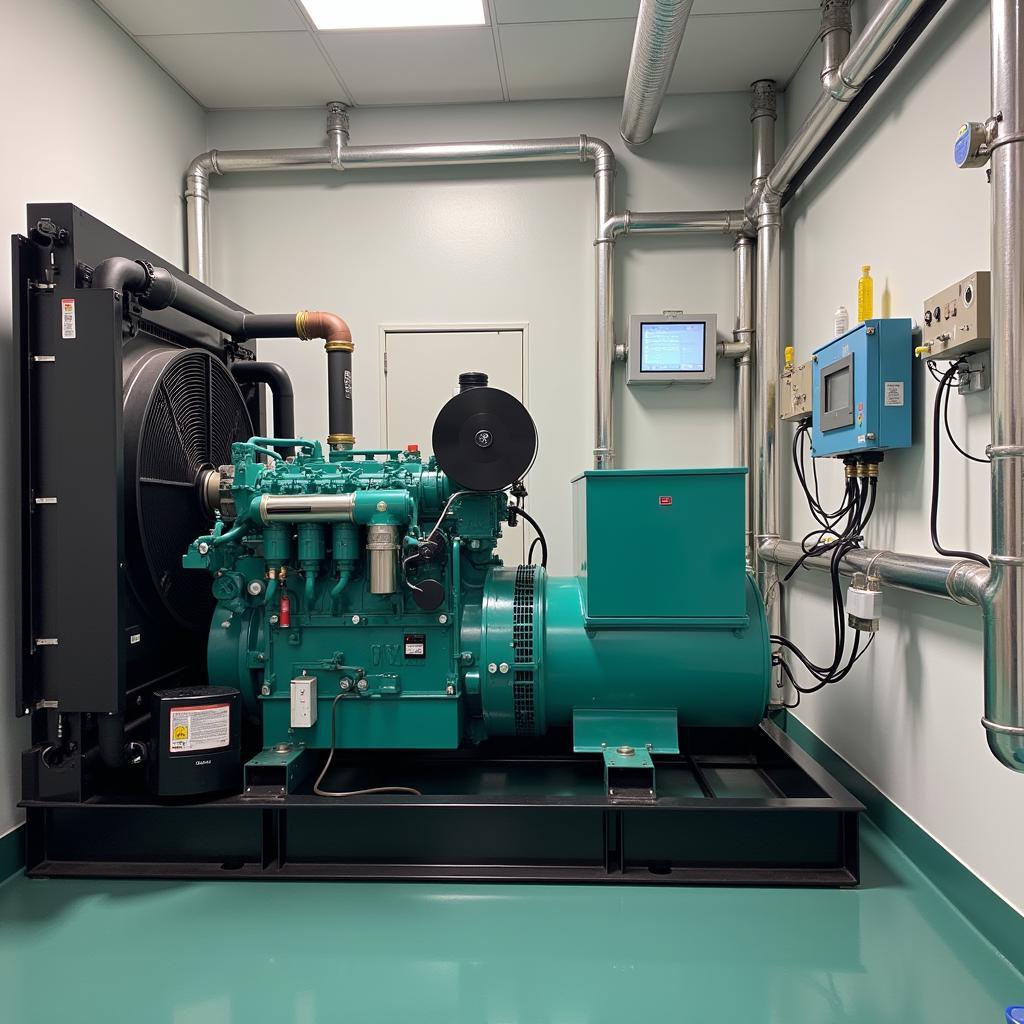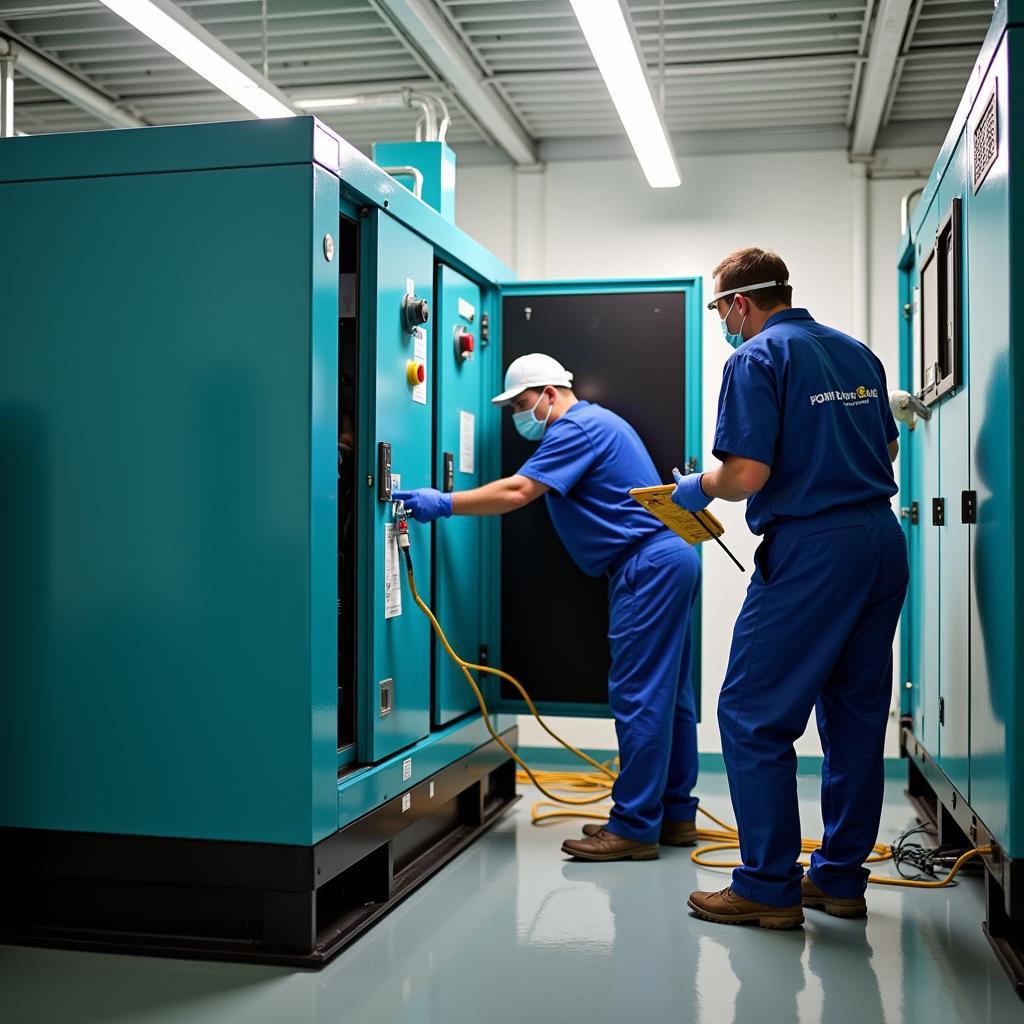Hospital Backup Power is a critical infrastructure component, ensuring the continuous operation of essential medical equipment and life support systems during power outages. A reliable backup power system is not just a regulatory requirement but a fundamental necessity for patient safety and the delivery of uninterrupted healthcare services. See our page on backup generator for hospital for more details.
The Importance of Reliable Hospital Backup Power
Hospitals are highly dependent on electricity, powering everything from operating rooms and intensive care units to diagnostic imaging equipment and ventilation systems. Any disruption in power supply can have life-threatening consequences. This is why a robust hospital backup power system is paramount, acting as an immediate safety net in the event of a power failure.
Hospitals require backup power systems that can seamlessly transition from the primary power source to the backup generator within seconds, minimizing any disruption to patient care. These systems must be regularly tested and maintained to ensure they are always ready to perform in an emergency.
Redundancy is also a crucial aspect of hospital backup power systems. This involves having multiple generators and fuel sources available to ensure that power can be maintained even if one generator fails or fuel supplies are disrupted.
Key Components of a Hospital Backup Power System
A comprehensive hospital backup power system typically includes several key components:
- Backup Generators: These generators are the heart of the system, providing the necessary power to essential equipment during an outage.
- Transfer Switches: These switches automatically detect a power outage and transfer the electrical load to the backup generator.
- Fuel Tanks: These tanks store the fuel needed to power the backup generators, often diesel or natural gas.
- Control Systems: These systems monitor the status of the backup power system and alert staff to any issues.
 Hospital Backup Power Generator System
Hospital Backup Power Generator System
Maintaining these components is vital to the system’s reliability. Regular inspections, testing, and preventative maintenance are necessary to ensure that the backup power system is always ready to perform when needed. Learn more about choosing the right generator on our page dedicated to hospital backup generator.
Regulations and Standards for Hospital Backup Power
Hospital backup power systems are subject to strict regulations and standards, such as those set forth by organizations like the National Fire Protection Association (NFPA) and the Joint Commission. These standards dictate specific requirements for the design, installation, testing, and maintenance of hospital backup power systems to ensure patient safety and compliance.
“Regular testing and meticulous maintenance are not just recommended practices, they are absolute necessities for any hospital striving to provide safe and reliable care,” emphasizes Dr. Emily Carter, Chief Electrical Engineer at San Jose Hospital.
Beyond the Basics: Advanced Backup Power Solutions
While traditional backup generators remain the cornerstone of hospital backup power, advanced technologies are emerging that offer enhanced reliability and efficiency. These include:
- Uninterruptible Power Supplies (UPS): UPS systems provide instantaneous power in the event of an outage, bridging the gap until the backup generator kicks in.
- Microgrids: Microgrids are localized grids that can operate independently of the main grid, providing a higher level of resilience and flexibility.
These innovative solutions are particularly valuable in areas prone to natural disasters or grid instability. “Investing in advanced backup power technologies is an investment in patient safety and the future of healthcare,” notes Dr. David Lee, Facility Manager at San Jose Hospital.
What are the different types of hospital backup power systems?
Typically, hospitals rely on diesel generators as their primary backup power source. However, other options include natural gas generators and, increasingly, renewable energy sources such as solar panels combined with battery storage.
How often should hospital backup power systems be tested?
Regular testing is crucial. Weekly tests are typically performed to ensure the system starts and runs correctly. More extensive testing, including simulated power outages, is often conducted annually.
 Hospital Backup Power System Testing
Hospital Backup Power System Testing
For patients seeking comfort and convenience during their stay, consider our hospital bed with remote control.
Conclusion
Hospital backup power is an essential investment, protecting patients and ensuring the continuous delivery of critical healthcare services. By implementing robust systems and adhering to rigorous standards, hospitals can safeguard against power disruptions and maintain a safe and reliable environment. A dependable backup power solution is not merely a contingency plan—it is a commitment to patient well-being. For patients needing specialized care, explore the efficient routing system at our route hospital. We also offer hospital bed fully electric for enhanced patient comfort and mobility.
FAQ
- What is the purpose of hospital backup power?
- What are the key components of a hospital backup power system?
- What regulations govern hospital backup power systems?
- What are some advanced backup power solutions for hospitals?
- How often should hospital backup power systems be tested?
- What are the different types of fuel sources for backup generators?
- How can hospitals improve the reliability of their backup power systems?
For any support or further information regarding our services, please contact us at Phone Number: 02437655121, Email: [email protected] or visit us at: No. 298 Cau Dien Street, Minh Khai, Bac Tu Liem, Hanoi, Vietnam. We have a 24/7 customer service team available to assist you.